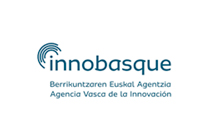 Aurreko ekintzak: Joaquín Goñi, PhD. Component-based analyses in the connectome domain: decomposing and refining individual connectomes from a group-level perspective
Aurreko ekintzak: Joaquín Goñi, PhD. Component-based analyses in the connectome domain: decomposing and refining individual connectomes from a group-level perspective
Joaquín Goñi, PhD. Component-based analyses in the connectome domain: decomposing and refining individual connectomes from a group-level perspective
When: 12:00 PM, noon
The explosion of publicly available neuroimaging datasets in the last five years have provided an ideal benchmark for estimating and assessing functional and structural connections in the human brain. At the same time, quantitative analysis based on complex networks have become more commonly used to study the brain as a graph , giving rise to the area of research so called Brain Connectomics. The analyses of these functional and structural brain connectivity patterns have allowed researchers to make inferences on the different organization of brain networks in clinical and healthy populations, and to assess changes by comparing different groups (data stratification, group-level comparisons). There is an increasing interest in individual connectomics and in the so called individual fingerprinting. Indeed, the neuroimaging community is moving towards approaches where subject-level individual connectivity patterns play a key-role to better understand how heterogeneity in networks properties may be associated with heterogeneity in, for instance, cognitive characteristics across subjects. In this talk I will present our recent work on two related aspects. First, I will present our framework, connICA, that allows to obtain independent connectivity patterns or traits at the group level while estimating the presence of each pattern at each individual. I will present applications of connICA for levels consciousness and for cognitive impairment in prodromal Alzheimer Disease. Second, I will present our work in progress for a framework that not only allows to map which connections show a higher capacity of individual fingerprinting, but also establish a data-driven approach for maximizing edge-wise individual fingerprinting based on PCA reconstruction of the data. Results based on HCP data will be presented.








